#House of Wittelsbach
Text

“Princess Sophie-Alexandra of Bavaria’s wedding dress was stunning and divine. One of my favorite royal wedding dresses.” - Submitted by Anonymous
57 notes
·
View notes
Text

VERY rare photo of Empress Elisabeth “Sisi” of Austria smiling at the camera, 1870s (?) 🤍✨🥹
Source: Pinterest
#awww <3#empress elisabeth of austria#elisabeth of austria#empress sisi#sisi of austria#Austrian royal family#rare#rare photos#house of wittelsbach#duchess Elisabeth of Bavaria#1870s
114 notes
·
View notes
Text


Letter from Duchess Ludovika in Bavaria to her niece, Countess Théodolinde of Württenberg (née Princess of Leuchtenberg):
Munich, 20 April, 1846
... I would not have thought of taking on a sub-governess, as I have an excellent nanny for the younger girls, with whom my Charles [Karl Theodor] is still with; but Hélène's character makes me wish to separate her from her sister Elise [Elisabeth]; without being mean, she has nevertheless influenced her sister, who is much gentler and of a very conscientious nature, but the elder one undermines her, and I am convinced that it is necessary to separate them as much as possible. My intention is: that the governess should manage the education, but so that she can take care of each one separately, I would like to take Mlle Richelle for fear of detouring from one to the other during this time. Also to take charge of French entirely, and to convey the lessons of M Zesage [?]. These are my intentions, but I can't make up my mind until I've heard back from the lady to whom I'd like to entrust my daughters. In the meantime I forgot to mention the reason for all these changes, which is that Miss Nembald is marrying Count Spreti, and will be leaving my daughters in the course of the summer! Thank God I always have good news from Louis [Ludwig Wilhelm], who is in such good hands! It's a great reassurance, and the 5 [children] I have left give me, as you can see, no shortage of work. For my Charles, I have the good fortune to have an excellent nanny capable of teaching him German, French, arithmetic etc. like a man, and who imposes more on him than a governor ever did on his brother, because he loves her very much - but it is not a small thing to rule this world! because other than that I have 2 teachers attached to our house who follow us on the campaign, one teacher of religion and the other, universal, for everything, because he teaches everything we can ask including Greek and Latin, for the boys and music. I kept him when Louis left, as he had only been with us for a few years. If he had had him earlier, he would have taken his education in a different direction, which would undoubtedly have been more successful...
#how did elisabeth became the wild child and helene the quite one in pop history howwww#anyway interesting letter because it shows ludovika was the one in charge of her kid's education#and it also shows it was a pretty conventional education for the time. note how greek and latin was only ''for the boys''#and also how the nanny can teach ''like a man'' because she *check's notes* knows maths#btw the letter was in french! this doesn't seem to have been usual for ludovika since all the other letters are written in german#with the exception of this and two others for theodoline. you can take a beauharnais out of france but not france out of a beauharnais#ludovika of bavaria duchess in bavaria#theodolinde of leuchtenberg countess of württenberg#empress elisabeth of austria#karl theodor duke in bavaria#helene in bavaria hereditary princess of thurn und taxis#duke ludwig wilhelm in bavaria#house of wittelsbach
31 notes
·
View notes
Text

Elizabeth Charlotte of the Palatinate, Duchess of Orléans (1652-1722). By Pierre Mignard.
#pierre mignard#royaume de france#maison de bourbon#maison d'orléans#bourbon orleans#elizabeth charlotte of the palatinate#duchesse d'orléans#madame palatine#liselotte von der pfalz#house of wittelsbach#german aristocracy#haus wittelsbach#museo del prado
17 notes
·
View notes
Text
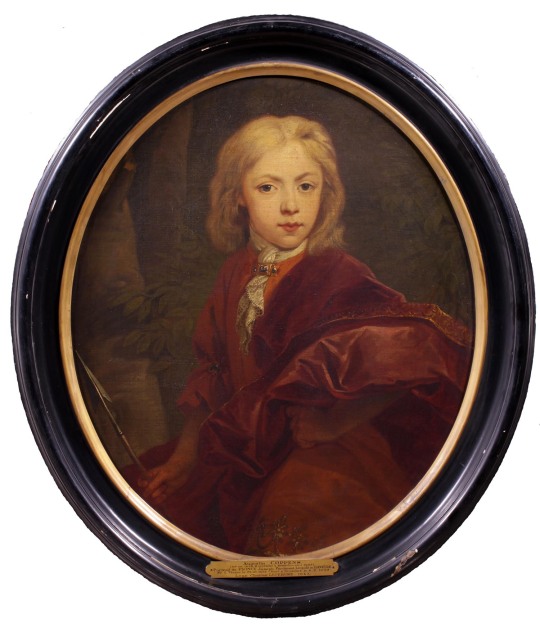
Portrait of Prince Joseph Ferdinand of Bavaria. By Augustin Coppens.
#augustin coppens#haus wittelsbach#bayern#bavaria#monarquía española#josé fernando de baviera#casa de baviera#german aristocracy#house of wittelsbach
20 notes
·
View notes
Photo

A portrait of Maria Josepha of Bavaria, Holy Roman Empress as the second wife of Joseph II.
#maria josepha of bavaria#holy roman empress#18th century#18th century art#house of habsburg lorraine#house of wittelsbach#long live the queue
38 notes
·
View notes
Text
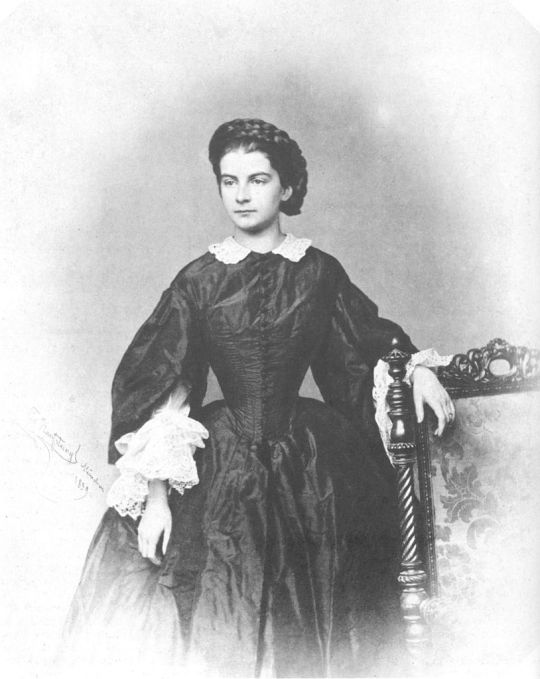
"Avast cry of joy and love welcomed the apparition of the queen on the esplanade where the shot was hailing : with the graceful freedom of her nineteen years, she advanced with an audacious step, smiling under the feathers of her hat, and girded by a corset refulgent as a corslet. Without a movement of the lashes at the whistling of the balls, she fixed upon the soldiers her glance, that was as intoxicating as the waving of flags, and under that gaze pride strove to widen the wounds, while those unhurt regretted not having the glory of a red spot. From time to time, men blood-spattered and powder-stained, with burning eyes in a blackened countenance, and with garments reduced to bits, as if by the jaws of a ruminant, threw themselves towards her from the cannons, calling her by name and kissing the hem of her gown.
" How beautiful she was, and how worthy of her throne ! " exclaimed the prince, who recovered the most masculine accents of his voice in lauding that worth. " Her presence had a magnetic power upon the soldiers, and when she was there all became lions. The 22d of January was the most glorious of the siege because she remained upon the batteries until nightfall."
A pause almost of recollection succeeded, in which each of us in imagination contemplated the ideal figure of the heroine on a field of ruins and corpses.
" Tears were strangers to her eyes," said Violante, slowly, absorbed in distant memories, " at the last hour when I saw her weeping, I was as awed and astonished as if before an unforeseen and almost incredible fact. Kissing me, she made my face all wet,"
After an interval she added, " She wore a hat with a little green feather."
And a second or so later she continued :
" She had a great emerald at her throat."
Gabriele D'Annunzio "The maidens of the rocks"
5 notes
·
View notes
Text

Ulrika Eleonora, Queen of Sweden
Artist: Attributed to Martin van Meytens (1695–1770)
Genre: Portrait
Date: 1730
Medium: Oil on Canvas
COllection: National Portrait Gallery of Sweden
Ulrika Eleonora or Ulrica Eleanor, known as Ulrika Eleonora the Younger, reigned as Queen of Sweden from 5 December 1718 until her abdication on 29 February 1720 in favour of her husband Frederick.
#portrait#martin van meytens#ulrika eleonora#queen of sweeden#18th century art#swedish royal family#swedish culture#swedish royalty#embroidered#hair ornament#historical figure#house Of wittelsbach#ulrika eleonora of sweden
0 notes
Text

Prince Ludwig Heinrich of Bavaria (1982-). He’s the grandson of King Ludwig III of Bavaria.
1 note
·
View note
Link
Prince Ludwig and his Dutch-Canadian wife, Sophie Evekink, celebrated with a reception hosted at the palace by Ludwig’s cousin and Head of the House of Wittelsbach, Duke Franz of Bavaria. Dressed in their finest hats and sharpest suits, family and friends congregated beneath a cloudless sky in the sprawling grounds to toast the newlyweds.
0 notes
Text
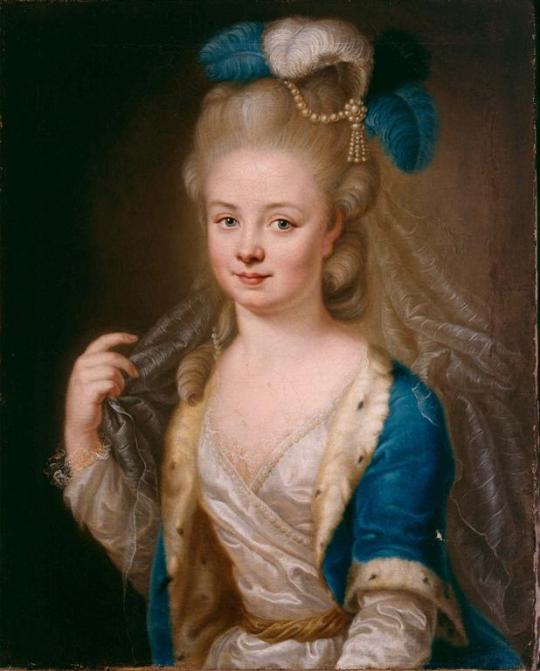
Countess Palatine Maria Anna of Zweibrücken-Birkenfeld-Bischweiler (18 July 1753 – 4 February 1824) was Countess Palatine of Birkenfeld-Gelnhausen and Duchess in Bavaria, through her marriage to Duke Wilhelm in Bavaria. Maria Anna was a great-grandmother of Empress Elisabeth of Austria through her son Duke Pius August in Bavaria.
#Maria Anna of Zweibrücken-Birkenfeld#House Wittelsbach#xviii century#xix century#people#portrait#paintings#art#arte
52 notes
·
View notes
Text

“Princess Sophie-Alexandra of Bavaria’s wedding reception dress was stunning and regal. It was like a dress from a fairytale!” - Submitted by Anonymous
38 notes
·
View notes
Note
What is your favorite royal house and favorite royal? (and why) conrasts btw!
Hi anon!
I think my favorite royal house obviously has to be the House of Romanov (russian royal family)!! This is the obvious choice because I love NAOTMAA and their life and history, but my love really just spans for them from the 1800s and up really. The early Romanovs aren’t my specialty nor my favorites.
But other royal houses that I love that stretch far beyond the 1800s are The Hapsburgs (Austria and Spain), The Wittelsbachs (Bavaria), The Tudors (England), The Hohenzollerns (Germany), and the many other royal houses of England (the Anglo Saxons, Normans, Plantagenets, Stuarts, Hanoverians, Saxe-Coburg and Gothas, and Windsors. These are all awesome because they just have such RICH history!
Thank you for your ask!
12 notes
·
View notes
Text
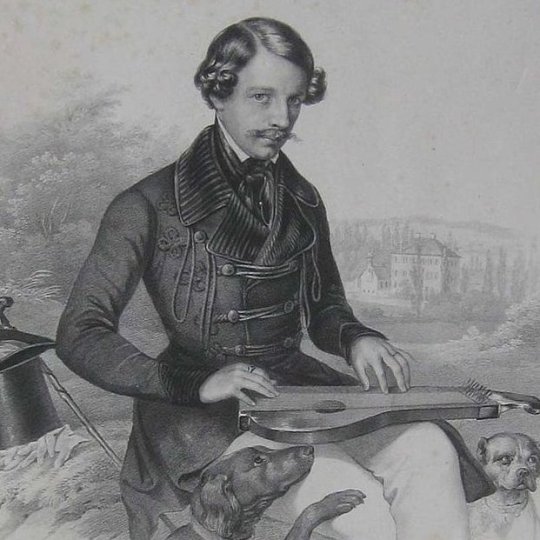

The duke [Maximilian in Bavaria] preferred to spend time in the private flat on the ground floor of the Palais Max, even in winter. Since the entrance faced the street, he could come and go without being noticed by the family. For example, when young Elisabeth was asked by the housekeeper if she had seen her father, who had just returned from a long journey, she replied: “No, but I heard him whistling”. Their contemporaries reported that Max and Ludovika often lived under the same roof for days without meeting. If the woman and the children wanted to see the duke, they would have to announce themselves to the servants. This distance was common in royal circles – the couple did not enter each other's flats, but had the chamber staff announce themselves. In the duke's case, it was a demonstration of how disruptive meeting his wife and children was to his daily routine.
Max seemed to repeat with his children what he had suffered with his father. He showed no interest in his offspring and with such clarity that his wife's relatives were horrified. Ludovika's sister, Archduchess Sophie, wrote that the fact that her brother-in-law was “not at all occupied with his wonderful treasure”, i.e. their first-born son, was evidence of frivolity and an “almost mute heart”. Elisabeth's brother, Carl Theodor, was no less severe: he called him “egoism made flesh”.
Elisabeth, who as a child was called Elise by her family, grew up under her mother's wing. Ludovika's childhood had been very different from her husband's, and equally different was the attention the two devoted to their children as parents.
The duchess also repeated her childhood experiences: for her, children were the centre of everything. If her parents already considered time spent with them a desirable family happiness, Ludovika also found fulfilment in looking after her offspring. One of her daughters-in-law even described her as “a distinctly maternal being”, seeing in her a woman who lived entirely for her children. Decades later she herself would tell her granddaughter Amalie von Urach that a woman only has her children “when men go their own way”. Despite Max's lack of interest in family life, the question of whether or not to bring offspring into the world was never questioned – as the old duchess put it, “never interfere with God's plans”. Ludovika's great commitment to her children, her passionate devotion to the role of mother at that time unusual for a woman of her status regardless of any maternal feelings, was also a compensation for the lack of attention within the marriage. Max was as disinterested in her as he was in his children, and offered her little more than a few acts of kindness. There was no relationship between the two, said Ludovika's sister Sophie, who protested: “Such indifference cannot even be imagined!”
If one investigates the reasons for Max's indifference not only towards Ludovika and the children, but also towards the judgement of those around him, one must take into account not only his sad childhood, but also the unique position he occupied within the Wittelsbach dynasty. Thanks to his family constellation, he was a very special lord of the majorat: not only did he inherit the entire family fortune, but at a young age he was never subject to any restrictions from the older and higher ranking members. Duke Max could do whatever he wanted, in the true sense of the word. Consequently, as well as displaying a strong individualism from a young age, he also developed a self-centredness that left no room for complacency towards others. Ludovika's family certainly perceived his behaviour as pure disrespect, but who was supposed to tell the duke what to do? The Bavarian king, Ludovika's half-brother, so outraged by Max's behaviour, was often on the verge of lecturing him, but for some reason he always spared him. It was he – and he alone – who was in control of the house, yet he was careful not to intervene.
Winkelhofer, Martina (2022). Sissi. La vera storia. Il camino della giovane imperatrice (Translation done by DeepL. Please keep in mind that in a machine translation a lot of nuance may/will be lost)
#after going through this book back and forth I finally started to read it properly (i.e. from the beginning until the end)#anyway friendly reminder that max wasn't a good father nor husband!#maximilian joseph duke in bavaria#ludovika of bavaria duchess in bavaria#karl theodor duke in bavaria#empress elisabeth of austria#historian: martina winkelhofer#house of wittelsbach
48 notes
·
View notes
Text

Prince Rupprecht of Bavaria (1869-1955).
Son of Ludwig III of Bavaria, he was opposed to the Nazi regime in Germany.
After the war he aspired to the restoration of the monarchy in Bavaria. Between 60-70% of the post-war population was in favour of the restoration, due to the good memory of the Wittelsbach government and the anti-Nazi attitude. As late as September 1954, 70 Bavarian parliamentarians declared themselves in favour of the monarchy. But opposition from the American occupation authorities prevented the restoration process going ahead.
6 notes
·
View notes
Text
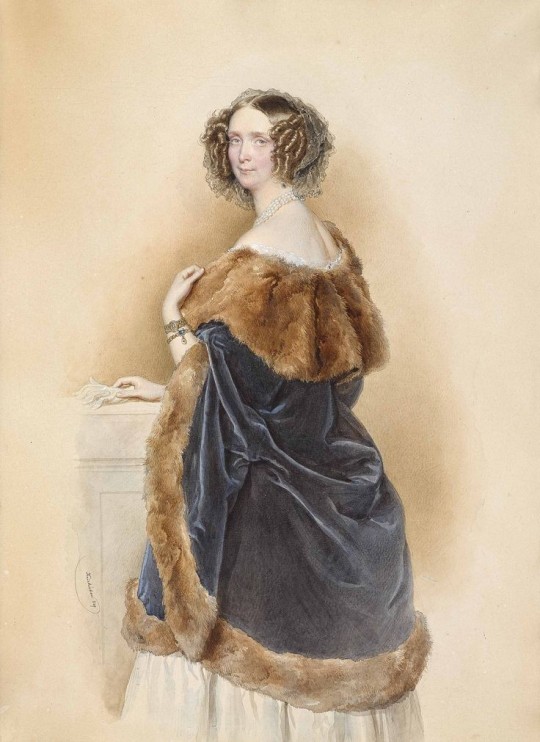
Archduchess Sophie of Austria, Princess of Bavaria. By Josef Kriehuber.
#josef kriehuber#kaisertum österreich#haus habsburg lothringen#erzherzogin#archduchess#house of habsburg lorraine#haus wittelsbach#german aristocracy#house of wittelsbach
8 notes
·
View notes